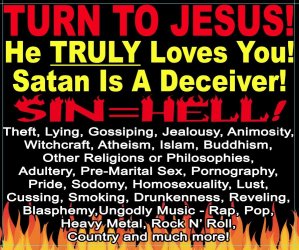The Holy Bible teaches that there is one of two verdicts rendered at the end of one's life: Eternal Life or Eternal Condemnation. The choices you make throughout your life determine the verdict.
Daniel 12
[2] And many of them that sleep in the dust of the earth shall awake, some to everlasting life, and some to shame and everlasting contempt.
[3] And they that be wise shall shine as the brightness of the firmament; and they that turn many to righteousness as the stars for ever and ever. (KJV)
John 5
[24] "Most assuredly, I [Jesus] say to you, he who hears My word and believes in Him who sent Me has everlasting life, and shall not come into judgment, but has passed from death into life.
[25] Most assuredly, I say to you, the hour is coming, and now is, when the dead will hear the voice of the Son of God; and those who hear will live.
[26] For as the Father has life in Himself, so He has granted the Son to have life in Himself,
[27] and has given Him authority to execute judgment also, because He is the Son of Man.
[28] Do not marvel at this; for the hour is coming in which all who are in the graves will hear His voice
[29] and come forth—those who have done good, to the resurrection of life, and those who have done evil, to the resurrection of condemnation..." (NKJV)
Daniel 12
[2] And many of them that sleep in the dust of the earth shall awake, some to everlasting life, and some to shame and everlasting contempt.
[3] And they that be wise shall shine as the brightness of the firmament; and they that turn many to righteousness as the stars for ever and ever. (KJV)
John 5
[24] "Most assuredly, I [Jesus] say to you, he who hears My word and believes in Him who sent Me has everlasting life, and shall not come into judgment, but has passed from death into life.
[25] Most assuredly, I say to you, the hour is coming, and now is, when the dead will hear the voice of the Son of God; and those who hear will live.
[26] For as the Father has life in Himself, so He has granted the Son to have life in Himself,
[27] and has given Him authority to execute judgment also, because He is the Son of Man.
[28] Do not marvel at this; for the hour is coming in which all who are in the graves will hear His voice
[29] and come forth—those who have done good, to the resurrection of life, and those who have done evil, to the resurrection of condemnation..." (NKJV)

